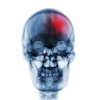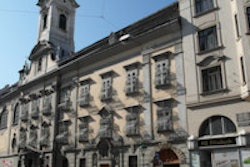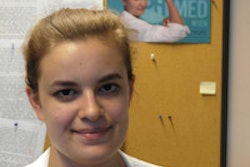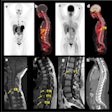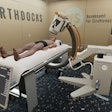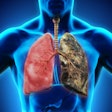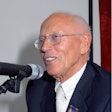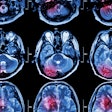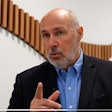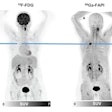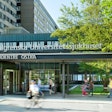
VIENNA - Radiologists and other doctors at Austria's largest hospital are to begin voting this Friday on whether to launch a strike, following months of failed negotiations over pay and working conditions.
More than 1,500 physicians at Vienna's general hospital, the Allgemeines Krankenhaus (AKH), are eligible to vote over the next week. If they agree to strike, it remains uncertain when a walkout would take place and for how long, or whether any of Austria's more than 20,000 other public doctors would join the action. A separate strike by non-AKH physicians in Vienna also is possible.
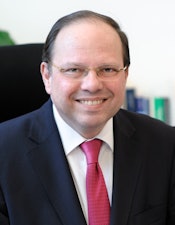 The strike vote represents a protest and a sign of desperation, according to Dr. Thomas Szekeres. Image courtesy of Stefan Seelig.
The strike vote represents a protest and a sign of desperation, according to Dr. Thomas Szekeres. Image courtesy of Stefan Seelig."We don't know exactly what is going to happen," Dr. Thomas Szekeres, president of the Vienna medical chamber, the Äztekammer für Wien, told AuntMinnieEurope.com. Once voting is completed on May 27, "we will go on from there."
If doctors go on strike, he said it would most likely involve cutbacks in weekend and outpatient services, including nonemergency radiology, but emergency treatment would not be affected.
Still, a strike could have a significant impact on healthcare in the Austrian capital. AKH, the clinical arm of the Medical University of Vienna, is one of Europe's largest medical research institutions and the city's most important facility for emergency and chronic care. The 2,100-bed hospital draws on 27 specialized clinics, including radiology and nuclear medicine, as well as university research centers.
The dispute stems in part from Austria's compliance with the European Union's Working Time Directive. Austria implemented the law's 48-hour maximum workweek for healthcare workers this year, and most public medical facilities agreed to boost base pay for physicians and other medical staff starting in January to compensate for lost overtime income since many doctors traditionally work much longer than that.
However, AKH physicians are employees of the state university and are not due to receive the raises similar to medical staff at other government hospitals until next year. Szekeres supports the shorter workweek but said doctors could lose up to 40% of their pay due to reduced overtime, "which is not acceptable."
The university has offered a 20% across-the-board increase in pay starting on 1 January 2016, followed by an additional 10% in 2019. It has also pledged not to cut medical staff and provide more flexibility in duty rosters, a deal that university officials say exceeds physician demands. But negotiations have stalled. In March, more than 500 AKH doctors met to discuss the situation amid broader protests by Viennese hospital health workers over pay and work conditions.
Calls for return to negotiating table
Officials at the Medical University declined AuntMinnieEurope.com's request for an interview, instead referring to a statement published on 4 May in which Rector Wolfgang Schütz accused doctors' representatives of refusing to negotiate.
"In the interests of the medical fraternity at MedUni Vienna and of the patients at Vienna General Hospital, our negotiation partners should leave the picket line and come to the negotiating table, instead of holding their own meetings and coming up with more and more demands," he stated.
It is unclear if contingency plans were being made at Vienna's 10 other public health facilities to handle any influx of patients resulting from a strike. A request for an interview with Sonja Wehsely, a Social Democrat who is Vienna's executive city councilor for health and social services, was turned down.
More than money
Szekeres, a professor in the university's department of laboratory medicine, said the vote isn't just about money. He criticized hospital administrators and politicians for their handling of the transition to the new working hours and for planned medical staff reductions at other public hospitals.
He also complained that young doctors at AKH are being assigned to do routine tasks that could be handled by the nursing staff, and that higher salaries in other Austrian cities, Germany, and other European countries risk creating a medical brain drain at a time when Vienna's population is growing. The chamber estimates that 40% of medical school graduates now leave Austria for jobs elsewhere.
In a blog published by the medical chamber on 15 May 15, Szekeres wrote that deciding to strike is not an easy choice to make.
"It is a protest signal and simultaneously a sign of desperation. Yes: desperation about health policies and the management of health services that fails to acknowledge realities, does not want to reform deficiencies and to whitewash truths," he wrote.



